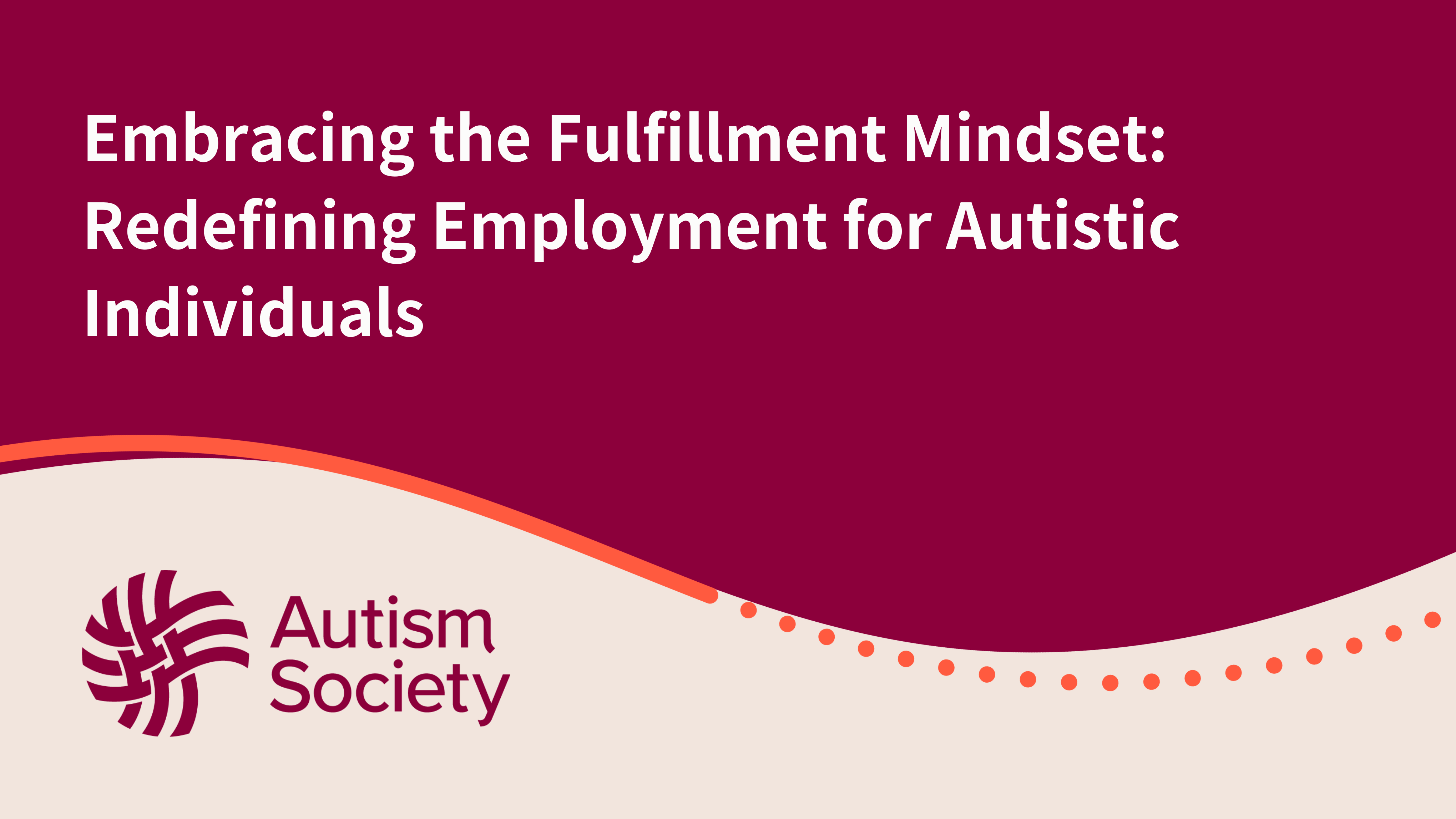
In this issue of Capitol Connection, learn about the Senate-passed Inflation Reduction Act and see how the House and Senate funding bills impact programs that support individuals with Autism. In addition, find updates on health, dental, and transportation policies. Please continue to use the Autism Society’s online Action Center for voting information, links to disability-related legislation, and sample letters to use to educate Members of Congress.
Legislative Update
Inflation Reduction Act (IRA)
In a rare weekend session of Congress, the Senate finally passed a massive budget reconciliations bill, the “Inflation Reduction Act” (IRA) that aims to address climate change, lower health care costs, and decrease the federal deficit by raising taxes on large corporations and closing tax loopholes. The vote was 50-50, with Vice President Harris voting to break a tie. While the Autism Society is extremely disappointed that funding for Medicaid home and community-based services (HCBS) was not included in the package, we are pleased to report that a number of provisions will directly and positively affect people with Autism and other disabilities.
The IRA provides a three-year extension of premium subsidies to maintain access to Affordable Care Act health insurance. The bill also contains a series of provisions designed to reduce the cost of prescription drugs. For the first time, Medicare will be able to negotiate for lower prescription drug prices and annual out-of-pocket costs will be capped at $2,000. The bill also expands the Part D Low-Income Subsidy. The bill includes language that addresses a key disability concern about the use of Quality Adjusted Life Years (QALY’s) by banning the use of evidence or findings from comparative effectiveness research that treats extending the life of a person with a disability as of lower value than extending the life of an individual without a disability. In addition to the health care provisions, the bill includes funding that could be used towards accessible sidewalk improvements, curb ramps, audible pedestrian signals, assessing transportation equity, and expanding public participation in transportation planning by individuals and organizations in underserved communities.
Previous versions of the bill extended Medicaid coverage to about 2.2 million people living in the dozen states that opted not to expand Medicaid under the Affordable Care Act, but the Senate’s bill didn’t include the provision. Sen. Raphael Warnock (D-GA) offered an amendment to add the policy into the package. But the amendment was voted down, as Democrats largely stuck together in opposing major changes to the bill.
For more information on the bill, see CCD’s statement in support of passage, Senator Casey’s (D-PA) statement, and the Center for American Progress summary.
The next step is for the House to take up the package, which may happen as early as this week. So far, it appears that the House has the votes to pass the measure and President Biden supports the measure. The Autism Society will continue to advocate for the final passage of this bill. In addition, we will not stop advocating for additional funding to support individuals with disabilities who want to live independently in the community.
Budget and Appropriations
On July 28, the Senate published the 12 annual appropriations bills for the Fiscal Year 2023. The Labor, Health, Human Services, Education and Related Agencies bill funds most of the programs that support people with Autism and other disabilities. Both draft bills provide slight funding increases for many programs important to people with Autism and families, with the House bill providing the high water mark. The most significant percentage increases over the previous fiscal year are the Lifespan Respite Care Act, Individuals with Disabilities Education Act (IDEA) early intervention and personnel preparation, and parent information centers. The Autism Cares Act program for the training of health professionals and developing services would receive a $3 million increase over FY 2022. See the table below to see the comparison between the House and Senate bills and how those bills compare to the previous year. The next step is for the House and Senate to work out the differences between the two bills and pass the final bill. The new fiscal year begins on October 1 but one or two continuing resolutions are expected before a final bill is finalized.
| Table Comparing House and Senate funding bills for the Departments of Labor, HHS, Education, and Justice(in millions) |
|||||
| FY22 Enacted | President FY 2023 Request | House FY23 bill | Senate FY23 bill | House vs. Senate bills | |
| Department of Health and Human Services | |||||
| University Centers (UCEDD) | 42.0 | 47.0 | 42.0 | 45.0 | +3.0 |
| Projects of National Significance | 9.0 | 25.0 | 14.0 | 12.0 | -2.0 |
| DD Councils | 80.0 | 88.5 | 85.0 | 82.0 | -3.0 |
| Protection & Advocacy | 42.0 | 60.0 | 50.0 | 45.0 | -50 |
| Lifespan Respite Act | 8.0 | 14.0 | 14.0 | 14.0 | 0.0 |
| National Family Caregivers | 194.0 | 250.0 | 230.0 | 220.0 | -10.0 |
| Health Resources and Services Administration (HRSA) | |||||
| Maternal and Child Health Block Grant | 748.0 | 954.0 | 873.0 | 952.0 | -21.0 |
| Autism CARES | 54.0 | 57.0 | 57.0 | 57.0 | 0.0 |
| Centers for Disease Control and Prevention (CDC) | |||||
| Center on Birth Defects and DD (NCBDDD) | 177.0 | 195.0 | 225.0 | 231.0 | -6.0 |
| National Institutes for Health | |||||
| NICHD | 1,683.0 | 1675.0 | 1,683.0 | 1,746.0 | +63.0 |
| NIMH | 2,100.0 | 2,200.0 | 2,217.0 | 2,333.0 | +116.0 |
| Department of Education | |||||
| IDEA Part B | 13,000.0 | 16,000.0 | 16,259.0 | 15,319.0 | -940.0 |
| Part C Early Intervention | 496.0 | 932.0 | 621.0 | 591.0 | -30 |
| Preschool Grants | 409.5 | 502.5 | 440.0 | 445.0 | +5 |
| IDEA Part D programs | |||||
| State Personnel Development | 38.6 | 38.6 | 38.6 | 38.6 | +0 |
| Technical Assistance | 44.0 | 49.0 | 44.0 | 84.0 | +40 |
| Personnel Preparation | 95.0 | 250.0 | 250.0 | 190.0 | -60 |
| Parent Information Centers | 30.0 | 45.0 | 40.2 | 45.2 | +5 |
| Education technology | 30.0 | 30.0 | 32.4 | 31.4 | -1.0 |
| Postsecondary Program for ID | 14.0 | 15.0 | 15.0 | 14.5 | -0.5 |
| Supported Employment | 23.0 | 23.0 | 23.0 | 23.0 | +0 |
| Department of Justice | |||||
| Kevin and Avonte’s Law | 3.0 | 3.0 | 3.0 | 3.0 | +0 |
Health Care
Senator Brown (D-OH) and Senator Portman (R-OH) introduced the Comprehensive Care for Dual Eligible Individuals Act of 2022 (S.4635). The bill aims to simplify coverage and coordinate services for people who are enrolled in both Medicaid and Medicare by providing states with the option to create an All-Inclusive Medicaid and Medicare program. See the text of the legislation on Senator Brown’s website.
E&C Committee White Paper on Disability Policy
The House Energy and Commerce Committee recently released a white paper outlining disability policy ideas under Republican ranking minority leader Cathy McMorris Rodgers. The paper addresses three main areas: 1. Ensuring access to long-term services and supports; 2. supporting access to assistive technologies and enforcing accommodation requirements in the Americans with Disabilities Act (ADA) and section 504 of the Rehabilitation Act of 1973, and 3. Moving the workforce toward integrated employment by eliminating the subminimum wage for people with disabilities. The Committee seeks feedback and input. Comments are due September 26. The Autism Society is working within the Consortium for Constituents with Disabilities (CCD) to develop comments.
Transportation
The United States Department of Transportation opened applications for a grant program entitled the “All Stations Accessibility Program,” or ASAP, to allow cities to apply for funding to ensure their mass transit systems are fully accessible and up to the Americans with Disabilities Act Standards. According to the Federal Transit Administration, as of 2020, a quarter of the nation’s rail stations remain inaccessible. This critical funding will help mass transit systems across the country be accessible for all, expanding community living.
Dental Care
The American Medical Association and the American Dental Association recently committed to providing training to new dental students on how to serve the autism community. This comes after stories of dentists not being well equipt to handle patients with disabilities, especially those with sensory needs.
State Advocacy
Abletosave Month
The ABLE National Resource Center is hosting #Abletosave month. Throughout August, it will provide resources and events to educate the public about ABLE accounts. ABLE Accounts are saving accounts specifically for people with disabilities who rely on income-restricted services to save money that does not count as income. See more resources ABLE to Save campaign website to help people in your community open an account.
Direct Support Professionals
The Institute for Community Integration at the University of Minnesota released a report on Community Supports in Crisis, focusing on the national shortage of direct support professionals (DSPs), in collaboration with the Human Services Research Institute and National Association of State Directors of Developmental Disabilities Service. The report focuses on what DSPs do, why the shortage exists, and policy solutions at the national and state levels. It also highlights state initiatives from Tennessee, Ohio, Missouri, and New York. State advocates can use the data and stories in this report to advocate for funding and policy solutions.
Share:




